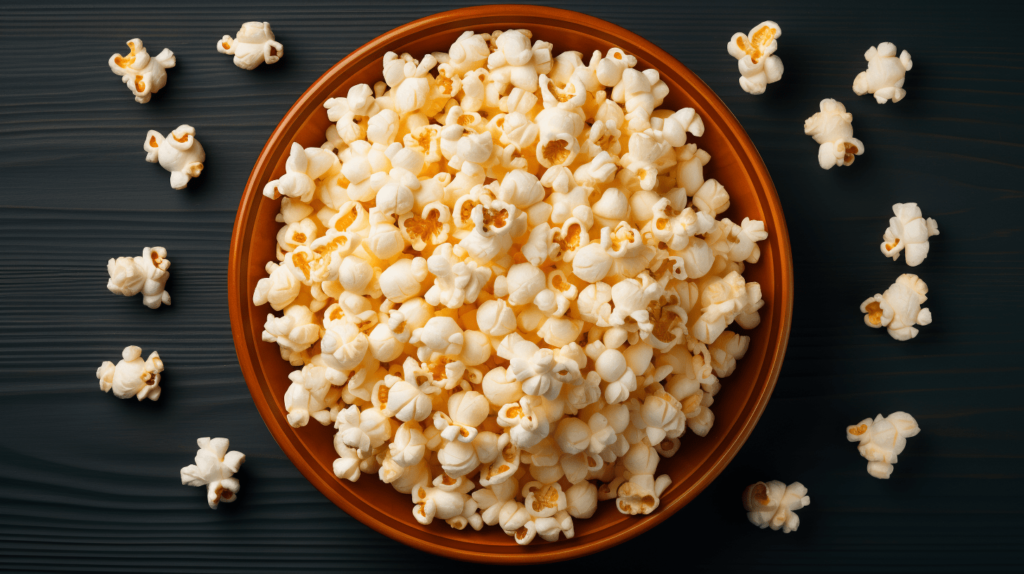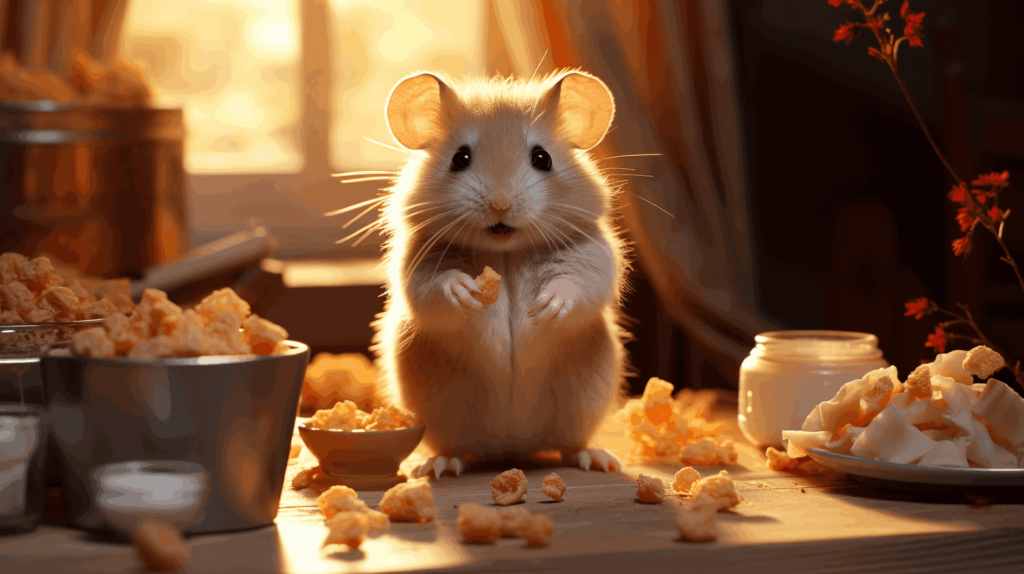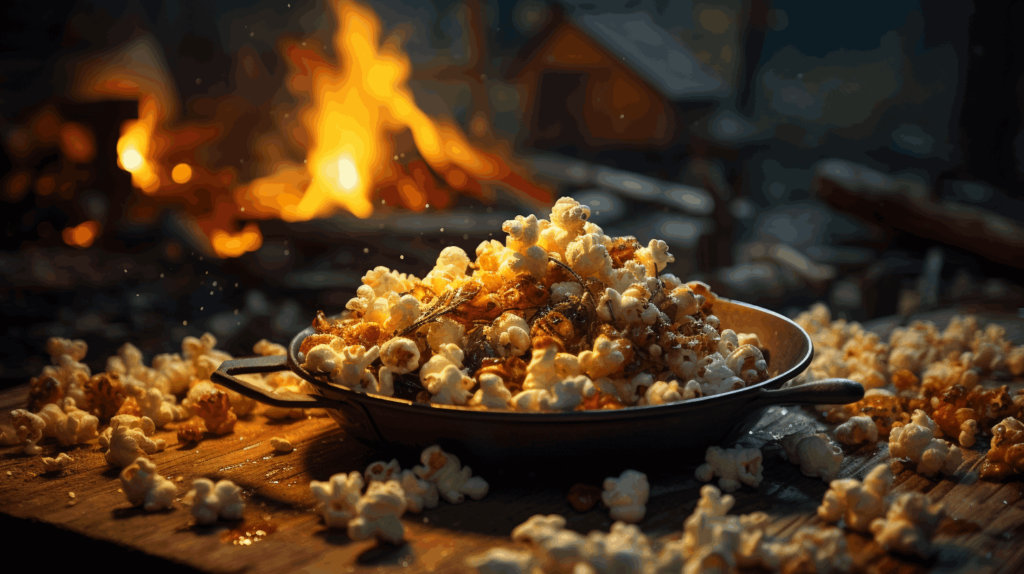Coincidence or culinary conundrum? The mystery of unpoppable popcorn kernels has perplexed popcorn enthusiasts and scientists alike. Despite following instructions, some kernels stubbornly refuse to transform into the light and fluffy snack we crave.
This article will explore the factors affecting popcorn popping, from moisture content to temperature and storage conditions. Discover why kernels fail to pop and gain practical tips for perfectly popped popcorn.
Get ready to unveil the secrets behind this tantalizing enigma.
Key Takeaways
- The moisture content of the kernels is crucial for proper popping, and achieving the perfect balance is necessary.
- Proper heating temperature ensures even and full popping, while low temperature can result in unpopped kernels, and high temperature can cause burnt popcorn.
- Kernel age affects popping, as older kernels may have lower moisture content and may not heat evenly.
- The quality of kernels, including factors like moisture content, freshness, and storage, determines the popping ability and overall popcorn experience.
Factors Affecting Popcorn Popping
One of the critical factors affecting popcorn popping is the moisture content of the kernels. Popcorn kernels contain a small amount of water inside their hulls. When heated, this moisture becomes steam, creating pressure inside the kernel. As the pressure increases, the hull eventually bursts, causing the kernel to pop.
If the moisture content is too low, the pressure may not build enough to burst the hull, resulting in kernels that do not pop. On the other hand, if the moisture content is too high, the steam may escape before the hull bursts, leading to partially popped or soggy kernels. The perfect moisture balance is crucial for producing fluffy, fully popped popcorn.
The Role of Moisture Content in Popcorn Popping
Understanding the importance of moisture content in popcorn popping is crucial, as it directly affects the final result and can determine whether the kernels will fully pop or remain unpopped. Here are three key points to consider:
- Optimal moisture content: Popcorn kernels contain a small amount of water inside their hulls. When heated, this water turns into steam, creating pressure that eventually causes the kernel to explode and turn into fluffy popcorn. The kernels may not pop if the moisture content is too low. Conversely, the popcorn may turn out chewy or soggy if the moisture content is too high.
- Storage conditions: Properly storing popcorn kernels is essential to maintaining their moisture content. Kernels should be stored in a cool and dry place, away from moisture and heat. Exposure to high humidity or extreme temperatures can cause the kernels to lose or absorb excess moisture, leading to poor popping results.
- Testing for moisture: To ensure optimal popping results, it is essential to check the moisture content of popcorn kernels before popping. A straightforward method is the ‘squeeze test.’ Take a small handful of kernels and squeeze them between your fingers. They are likely to pop nicely if they feel slightly moist and pliable. If they feel dry and brittle, they may not pop properly and should be discarded or rehydrated before use.
Importance of Proper Heating Temperature for Popcorn Kernels
Two key factors contributing to the quality of popcorn popping are the proper heating temperature and the moisture content of the kernels.
The heating temperature ensures that the kernels pop evenly and thoroughly. If the temperature is too low, the kernels may not pop at all or result in partially popped popcorn. On the other hand, if the temperature is too high, the popcorn may burn and become unpleasant to eat.
The moisture content of the kernels is equally crucial as it affects the expansion and fluffiness of the popped corn. Kernels with too much moisture can result in soggy popcorn, while kernels with too little moisture may not pop properly.
The right balance between heating temperature and moisture content is essential for producing high-quality, delicious popcorn.
The Impact of Kernel Age on Popcorn Popping
Our research findings reveal that the age of the popcorn kernels significantly affects their popping ability, as older kernels tend to have lower moisture content and may result in under-popped or unpopped popcorn. To further understand this phenomenon, we conducted experiments to determine the impact of kernel age on the final popcorn product.
- Moisture Content: Older kernels have lower moisture content, making it more difficult for them to pop. This is because the water inside the kernel turns into steam during heating, causing the kernel to expand and pop.
- Heat Distribution: Older kernels may not heat evenly, resulting in uneven popping. Some kernels may pop while others remain unpopped, leading to an unsatisfactory popcorn experience.
- Storing Conditions: Improper storage of popcorn kernels can accelerate aging, causing them to lose moisture and become less likely to pop. It is essential to store popcorn kernels in a cool, dry place to maintain their freshness.
Quality Considerations for Popcorn Kernels
How do the quality considerations for popcorn kernels impact their popping ability, and can we ensure that we use the best kernels for the perfect popcorn experience?
The quality of popcorn kernels is crucial in determining their popping ability and the overall popcorn experience. High-quality kernels are more likely to pop thoroughly and evenly, producing fluffy and delicious popcorn. On the other hand, low-quality kernels may have a higher chance of remaining unpopped or producing subpar popcorn.
Factors such as moisture content, freshness, and storage conditions can affect the quality of the kernels. To ensure the best popcorn experience, choosing fresh and adequately stored kernels with the correct moisture content is essential. Proper storage in an airtight container and using kernels within their recommended shelf life can help maintain their quality and ensure a perfect popcorn experience.
The Significance of Proper Storage for Popcorn Kernels
Proper storage is crucial for maintaining the freshness and quality of popcorn kernels, ensuring optimal popping results. Here are three key reasons why proper storage is significant:
- Preservation of moisture: Popcorn kernels contain a small amount of moisture, which is essential for proper popping. Improper storage can cause the kernels to lose moisture, decreasing the popping rate.
- Prevention of staleness: Storing popcorn kernels in an airtight container helps to prevent exposure to air and moisture, which can lead to staleness. Fresh kernels are more likely to pop fully and have a better taste.
- Protection against contaminants: Proper storage also helps to protect popcorn kernels from contaminants such as pests or odors. Storing them in a sealed container or jar ensures they remain clean and free from unwanted substances.
Reasons Behind Unpopped Popcorn Kernels
Due to inadequate heating and moisture, some popcorn kernels may remain unpopped despite being fresh and stored correctly. Popcorn kernels require a certain level of heat and moisture to pop successfully. If the pan or pot is not heated enough, the kernels may not have enough heat to pop.
Additionally, if the kernels do not have enough moisture, they may not pop properly. It is also important to note that the age of the kernels can affect their ability to pop. Kernels that are too old may have lost their moisture and will not pop as well as fresh kernels.
To ensure optimal popping, it is recommended to use fresh popcorn kernels and store them in an airtight container.
Common Mistakes in Popcorn Popping Techniques
One of the most common mistakes in popcorn popping techniques is not heating the kernels with enough heat and for the right amount of time, resulting in unevenly popped kernels and a less satisfying popcorn experience.
To ensure perfectly popped popcorn, it is essential to avoid the following errors:
- Insufficient heat: Inadequate heat will prevent the kernels from reaching their optimal popping temperature, resulting in only partially popped kernels or a batch that takes longer to pop.
- Improper timing: Timing is crucial in popcorn popping. If the kernels are not heated for the correct duration, they may not have enough time to reach their maximum expansion potential, leading to underpopped or burnt kernels.
- Lack of consistent heat distribution: Uneven heat distribution can cause some kernels to pop while others remain unpopped. Stirring or shaking the pan regularly ensures the kernels receive equal heat and moisture distribution.
Tips for Achieving Perfectly Popped Popcorn
To achieve perfectly popped popcorn, following these tips and incorporating a little oil and frequent shaking during cooking is essential.
Adding a small amount of oil to the kernels helps them pop more evenly and prevents burning. It also gives the popcorn a delicious flavor.
Additionally, shaking the pan or pot frequently ensures that the kernels are heated evenly and prevents them from sticking or burning. This will result in fluffy and fully popped popcorn.
It is also essential to use fresh popcorn kernels and store them properly in an airtight container to maintain their freshness.
Conclusion
In conclusion, the mystery of unpoppable popcorn kernels has been unveiled by exploring the various factors affecting popcorn popping. Readers can improve their popcorn-popping skills by understanding the role of moisture content, temperature, kernel quality, and storage conditions.
It is crucial to ensure proper heating, select fresh kernels, and store popcorn correctly to achieve a perfect popping experience. By avoiding common mistakes and following our practical tips, popcorn enthusiasts can enjoy a light and fluffy snack every time they indulge in this beloved treat.



